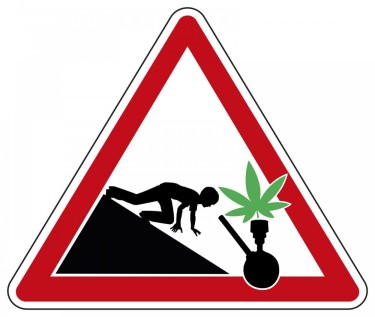
Your child just ate some edibles
What happens – and what you can do – if your child accidentally eats edibles
Reports of children accidentally ingesting marijuana edibles have been increasing.
This has become a cause for concern among parents and concerned adults across the country. That’s to be expected, however, as more adults than ever are using marijuana in a variety of forms.
Children between the ages of 3 and 5 are the most vulnerable to inadvertently ingesting cannabis edibles. This is probably because parents are a little more relaxed with children this age, allowing them to carry on at home with less supervision. Additionally, toddlers in this age group are more curious and will likely try to get their hands on treats that have previously been told they are off limits.
This is not the fault of cannabis legalization. Instead, it’s a symptom of some things that need improvement.
For one, edibles manufacturers can better camouflage their products so they are not enticing to children. Some state regulators have already cracked down on cannabis edibles, particularly the manufacture of brightly colored packaging, candies, and fruit chews, all of which resemble children’s candies. Another reason is that parents just need to be more careful about how and where they store cannabis edibles in their home.
After all, cannabis is like medicine for most of us. So you should take the same precautions to hide them as you would hide prescription drugs from your kids and keep them out of reach.
What happens if a child accidentally eats an edible?
When a child accidentally eats edibles, symptoms can vary depending on how much THC (tetrahydrocannabinol) is in them. Children who eat CBD candy (cannabidiol) or gummy bears are unlikely to experience any severe symptoms other than drowsiness or sleepiness. Although THC and CBD both come from marijuana, THC is the cannabinoid responsible for its psychoactive effects and high.
Children who eat a lot of CBD gummies are not going to have an overdose or severe reactions, or at least the risk is extremely low. However, those who consume large amounts of THC may experience some unpleasant reactions. However, children may experience intoxication, panic, slurred speech, dizziness, paranoia, slow heart rate, and poor coordination after ingesting THC edibles. In older children and adolescents, this can affect their concentration and memory.
What Parents Should Do
Parents should remain calm and try to find out how much edibles their child has consumed. If your child ate a 5mg candy, they probably won’t feel any major effects. But if you’ve consumed a 25mg gummie a few minutes ago, you can expect to feel the effects soon, so monitor them closely.
Note that there is no standard dose of THC that has been proven to be dangerous for children.
For adults who have accidentally consumed THC edibles, there is usually no need to panic provided you have someone close by who can take care of you. Unfortunately, this can be quite challenging and dangerous for children as they have much smaller bodies than us and can experience severe discomfort along with their high. It will vary from one child to another based on their metabolism and size. In general, a dose of 5mg will make a child drowsy, but consuming more than 10mg should require a visit to a doctor. The last thing you want is to see your child struggling to breathe and feeling very ill.
It would be advisable for parents to take their children to the nearest poison control center or at least call them. Poison control centers are non-judgmental and have prior experience with such situations. Upon arrival at the hospital, medical professionals will likely run a quick blood test to check how much THC is in your child’s system. If needed, they may give your child oxygen or an IV to support your child until the THC has metabolized and it is out of their system.
Parents should also remember that depending on where you live and state marijuana laws, the hospital may call Child Protection Services. This is to ensure that nothing is neglected at home. They basically want to make sure parents aren’t being careless by leaving THC gummies in areas of the house that are easily accessible to children, such as the bathroom. B. at the dining table or at the kitchen counter.
How to keep edibles away from children
Having to deal with child protection services or poison control is nothing short of an inconvenience…. But it’s also seriously scary to see your child suffer after accidentally ingesting edibles.
Parents, watch out: all of this can be avoided if you take the right precautions. Here’s what you can do to prevent your kids from accidentally eating cannabis edibles:
-
Treat your edibles as you would treat pharmaceutical medications. That means locking them up and keeping them out of the reach of children. Packing them in childproof containers is often not enough even for older children.
-
Do not eat cannabis edibles in front of your children. This may sound like common sense, but some parents may actually forget it. Keep in mind that many edibles on the market today come packaged in colorful packaging designed to mimic the look of real children’s candies.
-
Buy edibles with child-resistant packaging. Just don’t spend your money on edibles that already look tempting to kids.
Diploma
Keep your cannabis edibles away from children to enjoy marijuana with peace of mind. By taking a few simple precautions from the start, you can avoid the dangers and inconveniences of caring for your child after they accidentally ingest edibles.
KIDS EAT EAT, READ MORE…

REEFER MADNESS PART 2 – THE KIDS GET HIGH FROM FOOD!

Post a comment: